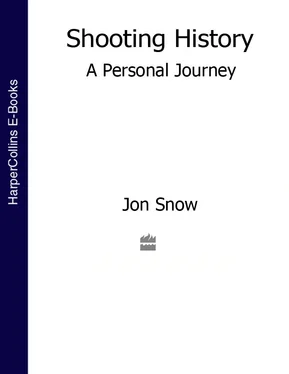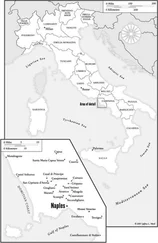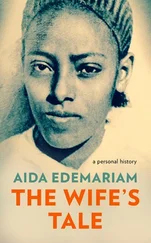With Kennedy gone, the wheels started coming off Macmillan’s wagon. The sixties began to swing. The Daily Mail revelled in telling us who was having whom, and where and how. Suddenly the where was Cliveden, and the who was the Minister for War, John Profumo. Profumo, who had had the misfortune to make love to a woman who was already sleeping with a Russian diplomat named Ivanov, a Soviet spy, was unhorsed for being economical with the truth about the matter in the House of Commons. We boys, reading this stuff, simply couldn’t believe it. The entire British Establishment had its collective trousers round its ankles, and we were thrilled by it. One day I would encounter John Profumo myself, in a very different guise.
We, with our posh accents, sneered at the Yorkshire-accented Harold Wilson, who became Labour Prime Minister in 1964 with a wafer-thin majority. But he won us over the moment he set fire to his jacket pocket with his pipe. Few other outside events impinged upon our lives. And then, one bleak winter’s day in January 1965, Winston Churchill died. Every living Field Marshal and more than sixty world leaders, led by former US President Dwight D. Eisenhower, attended the funeral in St Paul’s Cathedral on 30 January. Classes were abandoned for the day, and we were allowed to cluster around the few black-and-white television sets near the school. The lying in state, the swarming crowds, the vast procession, the gun carriage and the service in St Paul’s were all on an epic scale. Eisenhower, when he spoke, made my backbone tingle.
I can presume to act as spokesman for millions of Americans who served with me and their British comrades during three years of war in this sector of the earth. To those men Winston Churchill was Britain … I, like all free men, pause to pay a personal tribute to the giant who now passes from among us … We say our sad goodbye to the leader to whom the entire body of free men owes so much … and now, to you, Sir Winston – my old friend – farewell!
We weren’t to know it, but this was almost certainly one of the last times that collective America ever looked up to a politician who was not an American. One much later exception might prove to be Nelson Mandela, who at the time of Churchill’s death had already been in prison for treason for over two years, and still had twenty-four more to go.
Churchill’s coffin was borne by barge to Waterloo. Hearing on the wireless that it had departed for its final resting place at Bladon in Oxfordshire, hundreds of boys from the school set forth, swarming across the playing fields, down across the swing bridge on the Oxford canal and across to the side of the railway line on the edge of Port Meadow. There, exposed to the full might of the mad January wind, we stood in our grey-flannel uniforms and waited, straw boaters in our hands. Bladon was only ten miles up the line, close to Blenheim Palace where Churchill had been born. And then we heard it, far down the stilled line. Soon we saw the belching steam pumping into the brittle blue winter sky. Then the great Battle of Britain class locomotive was upon us. Irish Hussars flanked the catafalque. The sturdy, flag-draped coffin was clearly visible. We bowed our heads in genuine awe. As suddenly, it was gone. However brief, it was a passing of history that would inform my sense of Britain and America, and war, for the rest of my life.
America for me was still more than a decade away. That summer of 1966, at the age of eighteen, I went abroad for the first time with two friends from school. We bought a Bedford Dormobile for £50, converted it, and headed for Greece. Belgium, Germany, Austria and Yugoslavia yielded up an effortless tapestry of history and geography. More importantly, they generated a real thirst in me to go much further. It was that summer that confirmed in me the desire to spend a year in Africa or India, or some far-flung Pacific isle, to learn more about the world.
At the same time, having just left St Edward’s with only one ‘A’ level – a C pass in English – I had to set about getting educated. That autumn I ended up at Scarborough Technical College, on the edge of my father’s diocese. I was suddenly translated from dunce to intellectual. Fewer than twenty-five people out of the thousand at the college were taking ‘A’ levels at all; most were doing ‘day release’ courses in plumbing or bricklaying. Seven of us signed up to do law and economics at ‘A’ level. We had one lecturer, Bob Thomas, a wise and down-to-earth Welshman, and I learned more in a year with him than in five with the entire staff at St Edward’s. He even saved me from a disastrous affair with a beguiling older member of the administrative staff. After I was spotted disappearing out of the grounds at lunchtimes in her car and coming back more than a little dishevelled, Bob sat me down and suggested that I had a long and successful life ahead of me, and that it might not be such a good idea to be caught in flagrante with a married woman on the Scarborough downs.
I left the Tech after only a year with two more ‘A’ levels, having done much to redress the ravages of private education on my confidence, ready to strike out into the world. My application to do Voluntary Service Overseas had been accepted. I was ready to go, but far less prepared than I knew.
Конец ознакомительного фрагмента.
Текст предоставлен ООО «ЛитРес».
Прочитайте эту книгу целиком, купив полную легальную версию на ЛитРес.
Безопасно оплатить книгу можно банковской картой Visa, MasterCard, Maestro, со счета мобильного телефона, с платежного терминала, в салоне МТС или Связной, через PayPal, WebMoney, Яндекс.Деньги, QIWI Кошелек, бонусными картами или другим удобным Вам способом.












